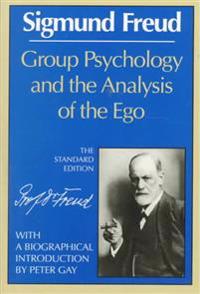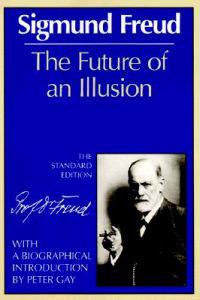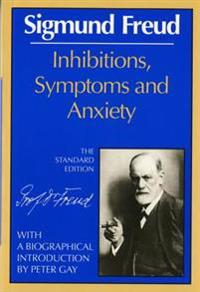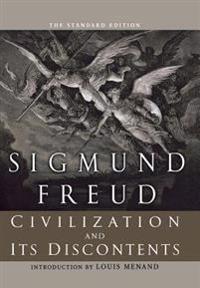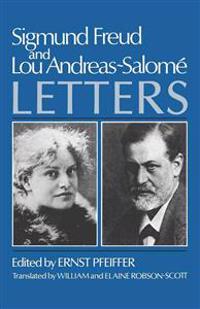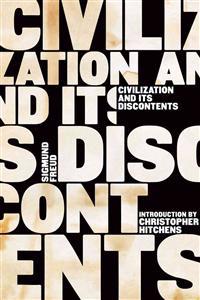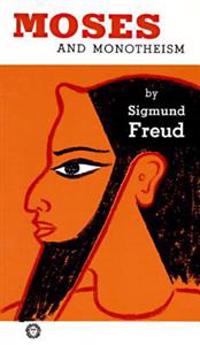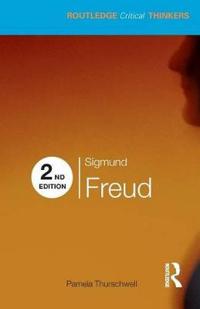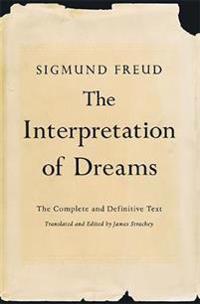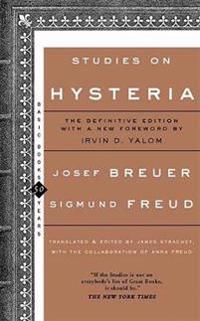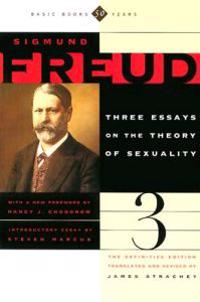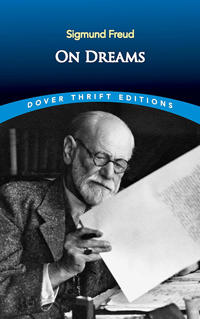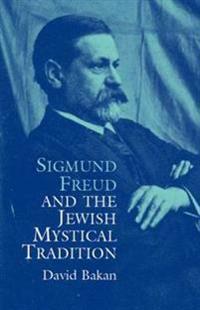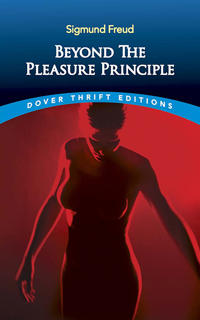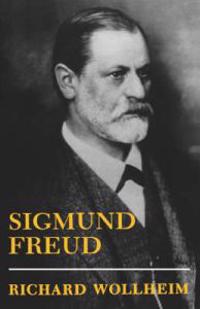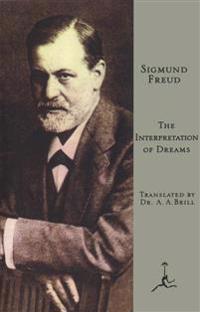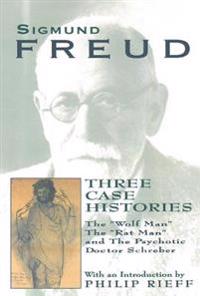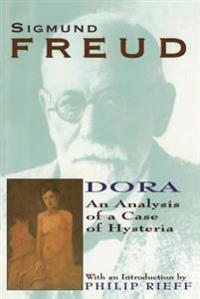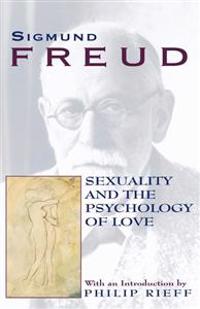Group psychology and the analysis of the ego (Pocket)
avSigmund Freud, Peter (INT) Gay, James (EDT) Strachey
ISBN: 9780393007701 - UTGIVEN: 1975-02The question he addresses here is, What are the emotional bonds that hold collective entities, such as an army and a church, together? It is a fruitful question, and Freud offers some interesting answers. But Group Psychology and the Analysis of the Ego stands chiefly as an invitation to further psy[...]
The Future of an Illusion (Häftad)
avSigmund Freud, James Strachey, Peter Gay
ISBN: 9780393008319 - UTGIVEN: 198909.
Inhibitions, Symptoms and Anxiety (Pocket)
avSigmund Freud, Peter Gay, James Strachey
ISBN: 9780393008746 - UTGIVEN: 197711On three or four occasions in his career as a psychoanalytic theoretician, Freud changed his mind on fundamental issues. Setting forth in rich detail Freud's new theory of anxiety, Inhibitions, Symptoms and Anxiety (1926) is evidence for one of them. In rethinking his earlier work on the subject, Fr[...]
Civilization And Its Discontents (Inbunden)
avSigmund Freud, James Strachey, Peter Gay
ISBN: 9780393059953 - UTGIVEN: 200501Civilization and Its Discontents may be Sigmund Freud's best-known work. Originally published in 1930, it seeks to answer ultimate questions: What influences led to the creation of civilization? How did it come to be? What determines its course? In this seminal volume of twentieth-century thought, F[...]
Sigmund Freud and Lou Andreas-Salomae, Letters (häftad)
ISBN: 9780393302615 - UTGIVEN: 1985-11Lou Andreas-Salome (1861-1937) was a writer and disciple of Freud who became a practicing analyst. For over two decades she and Freud kept up an intensive correspondence. Freud found in her a perceptive appreciater and amplifier of his ideas, and Frau Andreas found him a sympathetic critic of her ow[...]
Civilization and Its Discontents (Häftad)
avSigmund Freud
ISBN: 9780393304510 - UTGIVEN: 201008Freud's seminal volume of twentieth-century cultural thought grounded in psychoanalytic theory, now with a new introduction by Christopher Hitchens. Written in the decade before Freud's death, Civilization and Its Discontents may be his most famous and most brilliant work. It has been praised, disse[...]
Moses and Monotheism (Pocket)
avSigmund Freud
ISBN: 9780394700144 - UTGIVEN: 196706Freud's speculations on various aspects of religion where he explains various characteristics of the Jews in their relations with the Christians.[...]
Totem and Taboo (Pocket)
avSigmund Freud
ISBN: 9780394701240 - UTGIVEN: 1960-04In this controversial study Sigmund Freud (1856-1939) applies the theories and evidence of his psychoanalytic investigations to the study of aboriginal peoples and, by extension, to the earliest cultural stages of the human race before the rise of large-scale civilizations. Freud points out the stri[...]
Leonardo Da Vinci (Pocket)
avSigmund Freud
ISBN: 9780415253864 - UTGIVEN: 2001-05-17The text includes the first full emergence of the concept of narcissism and develops Freud's theories of homosexuality.[...]
Totem And Taboo (Pocket)
avSigmund Freud
ISBN: 9780415253871 - UTGIVEN: 2001-05-17If you don't know your incest taboo from your Oedipal complex, and you want to understand more about the culture we're living in, then Totem and Taboo is the book to read.[...]
Sigmund Freud (Storpocket)
avPamela Thurschwell
ISBN: 9780415473699 - UTGIVEN: 200904The work of Sigmund Freud has penetrated almost every area of literary theory and cultural studies, as well as contemporary culture. Pamela Thurschwell explains and contextualises psychoanalytic theory and its meaning for modern thinking. This updated second edition explores developments and respons[...]
Sigmund Freud's Discovery Of Psychoanalysis (Inbunden)
avPaul Schimmel
ISBN: 9780415635547 - UTGIVEN: 2013-09-23Sigmund Freud's Discovery Of Psychoanalysis (Pocket)
avPaul Schimmel
ISBN: 9780415635554 - UTGIVEN: 2013-09-23The Interpretation of Dreams (Häftad)
avSigmund Freud, James Strachey
ISBN: 9780465019779 - UTGIVEN: 201002What are the most common dreams and why do we have them? What does a dream about death mean? What do dreams of swimming, failing, or flying symbolize? First published by Sigmund Freud in 1899, The Interpretation of Dreams considers why we dream and what it means in the larger picture of our psycholo[...]
Studies on Hysteria (Häftad)
avJoseph Breuer, Sigmund Freud
ISBN: 9780465082766 - UTGIVEN: 200002The cornerstone of psychoanalysisand legacy of the landmark Freud/Breuer collaborationfeaturing the classic case of Anna O. and the evolution of the cathartic method, in the definitive Strachey translation. Re-packaged for the contemporary audience with what promises to be an unconventional forewor[...]
Three Essays on the Theory of Sexuality (Häftad)
avSigmund Freud
ISBN: 9780465097081 - UTGIVEN: 200001Y2K! The world waits anxiously to see what millennial mischief crops up. But at Basic Books the year 2000 is cause for celebration. Fifty years ago Basic was founded as a home for works by outstanding scholars on topics of wide importance and broad general interest. Over the years our authors have i[...]
On Dreams (Häftad)
avSigmund Freud
ISBN: 9780486415956 - UTGIVEN: 200103Directly after the 1900 publication of "The Interpretation of Dreams, "Freud wrote this more concise, accessible version of his theory of dreams as disguised wish fulfillment. This classic of modern psychology contrasts scientific and popular views of dreams, considers their origins, and discusses t[...]
Sigmund Freud And The Jewish Mystical Tradition (Pocket)
avDavid Bakan
ISBN: 9780486437675 - UTGIVEN: 2004-12In this pioneering work, the author challenges the popular view of Freud as an entirely secular intellectual, schooled in modern culture rather than Jewish traditions. Sigmund Freud and the Jewish Mystical Tradition is based on the premise that Freudian psychoanalytic theory is largely rooted in the[...]
Beyond the Pleasure Principle (Pocket)
avSigmund Freud
ISBN: 9780486790305 - UTGIVEN: 2015-02First published in 1920, "Beyond the Pleasure Principle "documents Freud's expansion of his psychological theories. Heretofore insisting that pleasure and sexual instinct are the chief factors in human behavior, Freud introduced the concepts of death drive and death instinct in this volume, depictin[...]
Sigmund Freud (Häftad)
avRichard Wollheim
ISBN: 9780521283854 - UTGIVEN: 198103This intellectual biography of Freud presents a fresh and thorough analysis of the whole body of his writings. Each of these is studied in its context, and their chronology is shown to be of great importance. The author demonstrates how Freudâs exploratory and sometimes hesitant efforts to expl[...]
The Interpretation of Dreams (Inbunden)
avSigmund Freud, A. A. Brill
ISBN: 9780679601210 - UTGIVEN: 199705One hundred years ago Sigmund Freud published The Interpretations of Dreams, a book that, like Darwin's Origin of the Species, revolutionized our understanding of human nature. Now this groundbreaking new translation--the first to be based on the original text published in November 1899--brings us a[...]
Three Case Histories (Häftad)
avSigmund Freud, Philip Rieff, Philip Rieff
ISBN: 9780684829456 - UTGIVEN: 1996-11Dora: An Analysis of a Case of Hysteria (Häftad)
avSigmund Freud
ISBN: 9780684829463 - UTGIVEN: 199711Sexuality and the Psychology of Love (Häftad)
avSigmund Freud, Philip Rieff
ISBN: 9780684838243 - UTGIVEN: 199704

